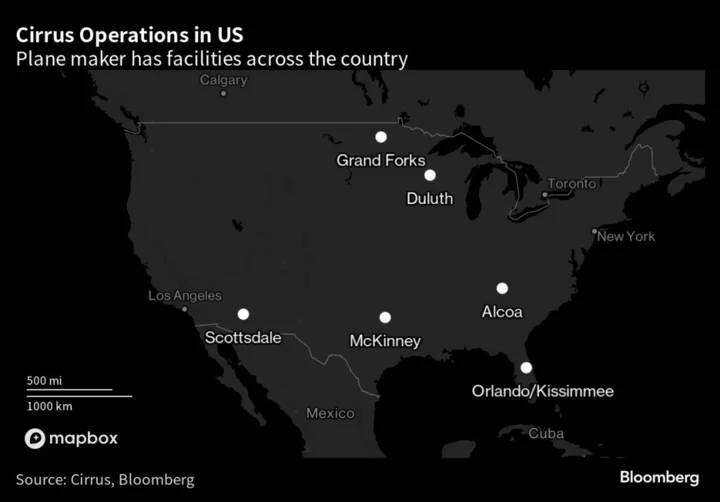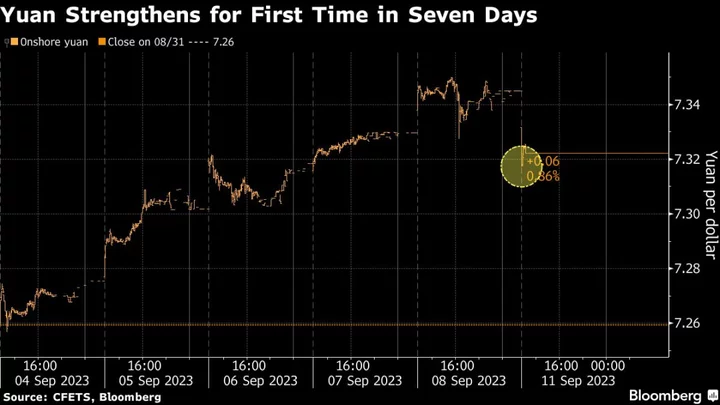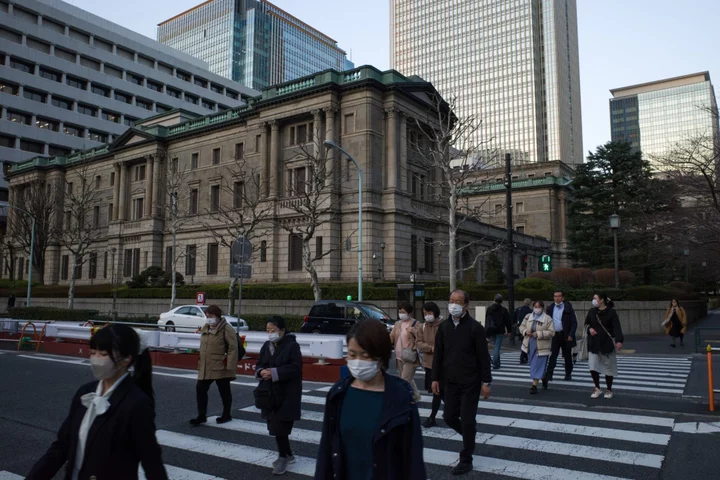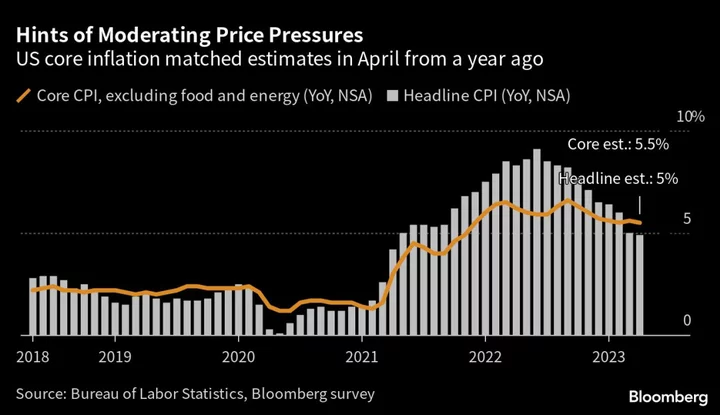US employment increased at a solid pace in July while wages rose at a faster-than-expected clip, consistent with sustained labor demand that’s at the root of renewed momentum in the economy.
Nonfarm payrolls increased 187,000 last month following a similar advance in June, a Bureau of Labor Statistics report showed Friday. The unemployment rate unexpectedly dropped to 3.5%, one of the lowest readings in decades.
Follow the reaction in real-time here on Bloomberg’s TOPLive blog
The figures highlight an economy that’s powering ahead, thanks to a strong labor market. Demand for new workers remains healthy, layoffs are easing and wage growth is finally outpacing inflation, contributing to renewed confidence among consumers.
Average hourly earnings were up 0.4% from June and 4.4% from a year earlier, both stronger than forecast. That said, pay growth has been showing signs of slowing, as the supply and demand for workers comes more into balance following years of pandemic-induced labor shortages.
The advance in payrolls reflected an acceleration in employment at service providers, over half of which came from health care. Hiring was also strong within financial activities and construction.
Combined with inflation that’s running at the slowest pace in more than two years, the data support growing calls that the Federal Reserve can tame price pressures without inducing a recession. Policymakers resumed hiking interest rates last week and left the door open for more, and Friday’s figures will help shape their next decision in September.
Chair Jerome Powell and his colleagues have emphasized it’ll depend on incoming data, and there’s still a lot to come between now and then. Officials will see another jobs report plus the latest readings on inflation, and Powell, among others at the Fed, will speak at the central bank’s annual Jackson Hole symposium.
The report indicated the mismatch in labor is slowly being alleviated. The overall participation rate — the share of the population that is working or looking for work — held at 62.6% in July, still the highest since March 2020. However, for those ages 25-54, it declined for the first time since late last year, largely due to women leaving the labor force.
Treasury yields declined and S&P 500 index futures rose. Traders assigned a slightly lower probability that the Fed will hike interest rates again by year-end.
--With assistance from Kristy Scheuble, Reade Pickert and Liz Capo McCormick.
(Adds graphic, more details)









